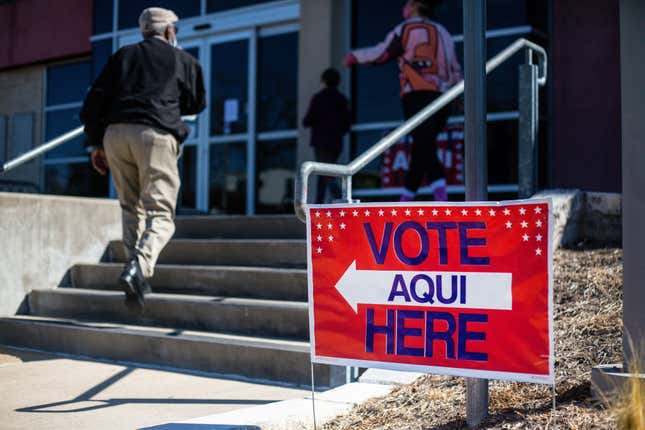
When the need for extensive voting rights protections has been discussed, it’s with foresight that restrictions passed in southern states will adversely impact the outcomes of the 2022 midterms and 2024 general elections. You can’t out-organize against polling place closures or voter ID laws.
With the North Carolina primary only months away, we all need to watch what’s going on in Texas. Senate Bill 1 has caused a lot of confusion, primarily regarding mail-in ballots. The new law requires that voters have to provide a partial Social Security number or driver’s license number on their mail ballot application. The ID number they provide has to match what’s on their voter registration record – the problem is that information could be decades ago. Many people don’t remember what number they gave. There is also a limit on who can vote by mail – mostly confining it to older and disabled voters.
The Associated Press analyzed that 23,000 mail ballots or 13% were rejected across 187 of Texas’ counties. Election experts state that anything above 2% is usually high. In Harris County alone, officials said 19% percent of the mail ballots they received, or 6,888 mail ballots in total, were rejected.
In January, the county noticed that their mail-in ballots were being rejected at a higher rate than normal. During the last midterm elections in 2018, Texas’ largest county only rejected 135 mail ballots. The investigation found that the rejections were widespread, from Democratic and Republican counties:
In the five counties won by Trump that had the most mail-in primary voters, a combined 2,006 mailed ballots were rejected, a rate of 10% of the total. In the counties won by Biden with the most mail-in voters, which include most of Texas’s biggest cities, a combined 14,020 votes were similarly rejected, which amounted to 15.7%.
Williamson County’s elections administrator, Chris Davis told NPR that he’s “never seen this number [of rejections] before. He also spoke about what tripped up voters in his county.
“The most common reason in my county’s case — and talking to my colleagues in other counties — was the lack of proper identification numbers or ID number issues with that ballot,” he said.
While Davis and his staff tried to help voter resubmit their ballots, they either didn’t have enough time to give them back or gave up.
“So many of those folks didn’t have a chance, either because there wasn’t enough time or because they had given up,” he said. “We encountered some folks who had given up and said, ‘Forget it, I have too many other things going on in my life.’ “
On the ID return envelope, the ID field is located under the envelope flap, which is very easy to miss. Davis noted, “the design of the envelope is problematic, in my opinion,” he said, “given that there are a lot of people that don’t give a second thought to something that is obscured upon sealing and mailing.”
A spokesman for the Texas secretary of state, Sam Taylor, said this was a problem across the entire state. There are plans to “step up voter education efforts ahead of the general election in November to enhance “awareness of the new mail-in ballot ID requirements.”
“Based on what we have heard from county election officials, the vast majority of mail-in ballot rejections were due to voters who did not provide any ID information on their carrier envelope,” Sam Taylor, assistant secretary of state for communications, said in a statement.
Seventeen states, including Georgia and Florida, have already passed some form of voter suppression through their state legislatures. Unfortunately, with the momentum behind passing the John R. Lewis Voting Rights and the Voting Rights Act, there may not be a way to protect against this.
If the condensed Freedom to Vote: John R. Lewis Act had been passed in January, two key protections would have been in place – every voter would be able to cast ballots by mail and voter registration would be automatic.
If what’s going on in Texas is a preview for things to come, then the slim Democratic majority in the House and Senate might be gone by next year.

